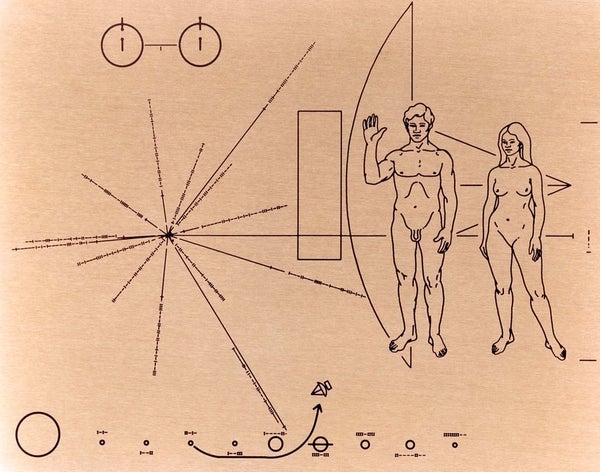This article was published in Scientific American’s former blog network and reflects the views of the author, not necessarily those of Scientific American
Scientists throughout the country across a wide spectrum of fields, from biochemists to physicists, are bemoaning the potentially devastating impact on science and technology in the United States of President Trump’s proposed budget request to Congress. As much as the scientific enterprise, and with it the development of new technologies necessary for the long term economic health and security of the nation will be hobbled should the budget requests be approved, the budget—which purports to strengthen our security via large increases in national defense and homeland security—paradoxically undermines the nations fundamental strength by presenting a broad attack on our culture that could be more devastating than any threat posed by a wave of illegal immigrants.
The President’s budget reflects a consistent and fundamental vision about American strength that is fundamentally at odds with a vision presented by almost 50 years ago by the physicist Robert Wilson, the first director of the Fermi National Accelerator Laboratory near Chicago at which a large particle accelerator was being built. When testifying before Congress about the machine and its cost, Wilson was asked if it completion would aid in the defense of the nation. His answer is striking.
No Sir…I don’t believe so…. It has only to do with the respect with which we regard one another, the dignity of men, our love of culture... It has to do with are we good painters, good sculptors, great poets? I mean all the things we really venerate in our country and are patriotic about. It has nothing to do directly with defending our country except to make it worth defending.
On supporting science journalism
If you're enjoying this article, consider supporting our award-winning journalism by subscribing. By purchasing a subscription you are helping to ensure the future of impactful stories about the discoveries and ideas shaping our world today.
The President’s budget will cut $900 million—20 percent—from the budget of the Department of Energy’s Office of Science, which is the chief funding agency for all of fundamental physical science research at US Universities and National Laboratories. It will also eliminate the $296 million combined budgets of the National Endowment for the Arts and the National Endowment for the Humanities, the major federal funding agencies for arts development and humanities research in the country. It will also cut the $230 million budget of the Institute of Museum and Library Services, which supports libraries and museums across the country and would eliminate the $445 million budget for the Corporation for Public Broadcasting.
Together these cuts total $1.87 billion from the $4 trillion total budget. At the same time $2 billion was added to the total budget to cover an initial down payment on the President’s proposed border wall with Mexico, and amount that exceeds the cumulative cost of all the above cuts by over $100 million.
Suggesting that cutting or eliminating the essential scientific and cultural infrastructure of the country in order to pay for a wall with Mexico, whose purpose and effectiveness has always been in doubt, is more than a facile comparison. It reflects the essentially flawed view of this administration about what is required to preserve American greatness: a laser focus on the defense of the nation in its most literal terms, including military superiority and secure borders, independent of whatever real or perceived threats may exist.
But it is here where Wilson’s answer to Congress is so important. Inherent in defending the nation is having a nation worth defending. This view is not new. It goes back at least as far as our founding fathers. As Thomas Jefferson wrote in an 1820 letter to Joseph Cabell, a Virginia politician who Jefferson recruited to help him endow funds to create the University of Virginia: All the States but our own are sensible that knowledge is power.
Whether or not knowledge alone is power is debatable. But the spirit of Jefferson’s remarks is not. Whether future historians will view the United States as a truly great nation will not depend upon our military strength or our ability to successfully assimilate immigrants, any more than we celebrate the greatness of ancient Greece or Rome by counting their military victories. As for those civilizations whose contributions to art, literature, and science provided the heritage on which modern western civilization is based, our greatness will be judged by our contributions toward subsequent human progress.
Science has an essential advantage of creating associated technologies that power the economic engines of modern society. But the essential value of science for the human condition is not different from that of art, music, and literature. All of these cause us to reflect upon, and sometimes change our perspective of our place in the cosmos, while at the same time inspiring awe and wonder about the world around us I have recently described the story of our 2000 year long intellectual quest to explore the universe and unravel its mysteries as the greatest story ever told…so far, because it reflects the essential greatness of human civilization, along with the ever-changing nature of progress. In this journey, the arts and humanities are inextricably linked with science as we have bravely march together forward toward a future full of surprises that were previously unimagined.
To place our society’s priorities so blatantly in favor of military defense while abandoning central features of what it is that makes our country worth defending reflects a fundamental antipathy toward science, the arts, and those features of our country that truly help make it great.
Lawrence Krauss's new book The Greatest Story Ever Told—So Far goes on sale today.
